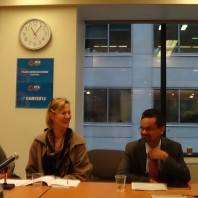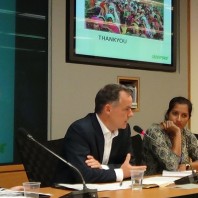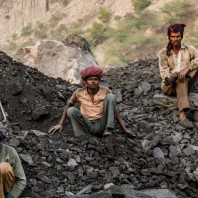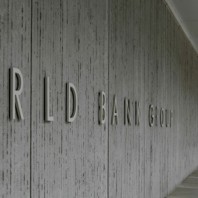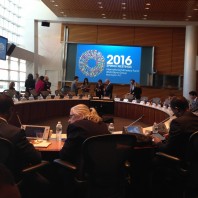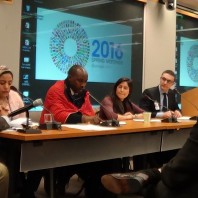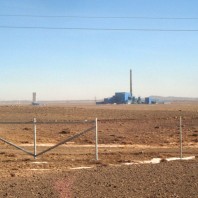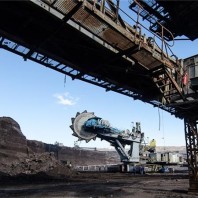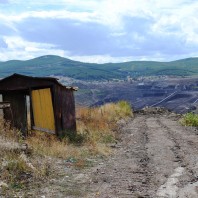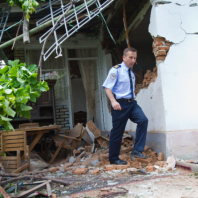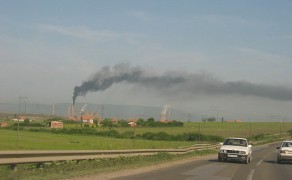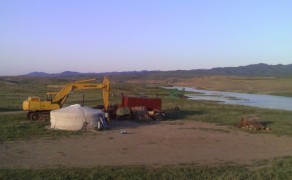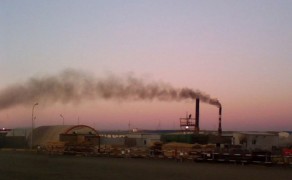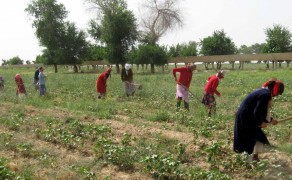This session at the World Bank Annual General Meetings 2016 Civil Society Policy Forum examines development policy financing (DPF) as a tool for scaling-up positive environmental and social impact amidst the global climate crisis. It features case study findings from recent operations that represent challenges to the achievement of World Bank climate and forest commitments …

The International Financial Institutions (IFIs) have made major investments in the countries of the Caucasus, Central Asia and Eastern Europe. Since 1995, BIC’s Europe and Central Asia (ECA) Program has worked to improve the lending policies of IFIs in the region and to ensure that the projects they financed served the interests of local populations.
BIC’s ECA Program emphasizes measures to improve the transparency of revenues and investment contracts in extractive industry projects financed by the IFIs and to minimize the adverse environmental and social consequences of such projects. A major focus of the ECA Program’s work in the region is building capacity among local civil society organizations to participate more fully in decision-making on IFI activities. In particular, BIC has an active country program in Mongolia.
As of November 2015, BIC has registered its European branch in the Netherlands and has since appointed a Europe and Central Asia Manager to run the program and European advocacy efforts out of Europe. At this time, BIC is seeking funds in order to continue our work in this region.
This World Bank Annual Meetings 2016 Civil Society Policy Forum session addressed how the World Bank Group can ensure that its financial intermediary (FI) investments are consistent with its forest and climate commitments. New research by Inclusive Development International on the impacts of IFC FI investments on forests, land rights, and climate was presented. A …
Photo © Joe Athialy (Washington DC, October 3, 2016) – The World Bank Group has secretly funded a coal boom in Asia despite announcing a moratorium on such projects in 2013, according to the results of a new investigation. World Bank President Jim Yong Kim has spoken forcefully about the dangers of new coal projects. …
Despite an unprecedented consultative process involving thousands of stakeholders from government, civil society, and the private sector, the review and update of the World Bank safeguard policies has proven to be a missed opportunity for the Bank to reclaim its place as a global leader in development. While the new Environmental and Social Framework (ESF) …
Joint letter asks the World Bank to go public with the final draft of its safeguard policies WASHINGTON, DC Today, 69 civil society organizations from 26 different countries asked World Bank management to maintain transparency throughout the ongoing review of its environmental and social policies. The World Bank’s environmental and social safeguard policies have been …
The World Bank has committed to 100% beneficiary feedback in its projects and aims through its corporate strategy to empower citizens to participate in the development process. At the same time, since 2012 over 60 countries have passed legislation restricting civil society’s ability to freely operate and many communities face intimidation or criminalization when raising …
FOR IMMEDIATE RELEASE: Water Disputes Persist as Rio Tinto Pushes Ahead with Second Oyu Tolgoi Mine (PRAGUE; KHANBOGD SOUM, MONGOLIA, February 10, 2016) – A large new copper mine in Mongolia could cause irreversible damage to terrain and deprive water from some of the world’s last remaining nomadic herding groups, finds a new report released today …
[Valerie Plesch/Al Jazeera] BIC’s Nezir Sinani was quoted in an Al Jazeera article on Kosovo’s coal country by Valerie Plesch. The article finds that “residents living in the polluting shadows of two power plants may soon contend with a third.” Find the full article here.
The World Bank seems eager to provide financial support to the Kosovar government for construction of a new coal-based power plant. But what about the people who are in the path of the expanded power plant and coal mine? Kosovo and the World Bank are trying to avoid responsibility for the impoverishment and suffering that will surely come on the heels of the involuntary resettlement of over 7,000 Kosovars from their homes and communities.
A Kosovo police officer inspects the damage caused by an explosion that rocked Kosovo’s main power plant, in Obilic, Kosovo, Friday, June 6, 2014 Photo: AP Photo/Visar Kryeziu via Climate Progress On Friday, Kosovo’s oldest lignite-based power plant exploded, killing two and injuring 13 people. The accident is the latest to occur in this country’s …
Other BIC Europe documents
- The World Bank Group (WBG) is currently funding two controversial projects in Kosovo, the Lignite Power Technical Assistance Project and the Kosovo KEK - Advisory Services Project.
- Original image by Eugene Simonov, Rivers without Boundaries Coalition
- Located in the Omnogovi Aimag (province) in the Southern Gobi Desert region of Mongolia, the Oyu Tolgoi copper/silver/gold mine is one of the largest undeveloped copper and gold deposits in the world.
- World Bank agriculture project supports sector with widespread, government orchestrated forced labor.

Tajikistan Project Electricity Trading and Transmission
The objective of the project is to create the conditions for sustainable electricity trade between the Central Asian countries of Tajikistan and Kyrgyz Republic and the South Asian countries of Afghanistan and Pakistan. The energy surplus produced during the summer time by existing hydropower plants in Kyrgyzstan and Tajikistan (Toktogul and Nurek hydropower plants, respectively) is provided to Afghanistan and Pakistan. The project risks are closely related with the damming of streams, using of transboundary waters of the Amudarya and Syrdarya rivers to generate electricity without taking into account the vital interests of the countries in the lower reaches of the Aral Sea basin – Uzbekistan, Turkmenistan and Kazakhstan – and the violation of water-ecological balance of Central Asian region.
Read more
Armenia Second Education Quality and Relevance Project and Education Improvement Project
The project has three main objectives: to enhance school learning in general education, improve the school readiness of children entering primary education, and support the integration of Armenian tertiary education system into the European higher education area. The current scope and form of the project does not take into account the vast governance and accountability problems in Armenia’s education sector, therefore it increases the risk of exacerbating the harm caused by the previous loan rather than improving the quality of and access to education in Armenia.
Read more
Ukraine Axzon Project
The IFC is investing in the Danish Company Axzon, a leading Eastern European pork producer, to support the company’s expansion in Ukraine. In February 2014 a complaint was lodged with CAO of IFC by members of communities from Deliyevo, Sivka-Voynylivska and Lany of Halych and Kalush districts of Ivano-Frankivsk region, with the support of the National Ecological Centre of Ukraine and BIC. The complainants raise issues regarding odors, land and water pollution related to the project’s use of manure, improper use and compensation of land, lack of information disclosure and consultation, impacts to road infrastructure, and environmental impact to natural parks and other areas. The complainants also express concerns about the project being in violation of national law as well as IFC Performance Standards.
Read more
Albania Kurum Hydro Project
The IFC has one active project with Kurum International (“Kurum”) in Albania, a steel producing company that successfully bid for 4 hydropower plants – Uleza, Shkopeti, Bistrica I, and Bistrica II that were privatized by the Albanian government. IFC seeks to support the Albanian power market liberalization efforts through the financing of (i) the acquisition of the HEPPs; and (ii) the estimated EUR 10 million rehabilitation investment of these power plants. Through this Project, Kurum contemplates reducing its electricity purchase costs, and to secure reliable electricity sourcing in order to continue its operations without major disruptions. The project is classed as a Category B. In June 2015, a complaint was lodged with CAO by several local residents who live in close proximity to Kurum’s steel plant. The complainants raise concerns about air pollution produced by the plant operations.
Read more
Serbia Floods Emergency Recovery Project
In May of 2014 Serbia suffered from severe floods that disproportionally affected the poor and vulnerable, the agriculture and energy sector and the flood protection infrastructure, hence making the country more vulnerable to future floods. In view of this the World Bank financed the Floods Emergency Recovery Project, which consists of four components: (1) Energy Sector Support; (2) Agricultural Sector Support; (3) Flood Protection; and (4) Contingent Emergency Response. A year later, in September 2015, the Panel received a request for inspection of the project raising concerns about the dewatering of a flooded mine and alleging impacts to community members living nearby. The affected people live approximately 200 meters from the open pit mine and claim that they suffer from emissions, vibrations, noise, and a lack of drinking water. Communities claim that the operating procedures of the World Bank not properly implemented.
Read moreCyril Muller
Vice President, Europe and Central Asia
Email: cmuller*worldbank.org
Carl Hanlon
Head of Communications, Emerging Europe and Central Asia
Tel: +1 202 473 8087
Email: chanlon*worldbank.org
Elena Karaban
Communications, Emerging Europe and Central Asia
Tel: +1 202 473 9277
Email: ekaraban*worldbank.org
Director, Europe and Central Asia
Tel: + 7 495 411 7555
Email: TTelma*ifc.org
Address:
36, Bldg. 1
Bolshaya Molchanovka Street
Moscow 121069
Russian Federation
Riham Mustafa
Head of Communications, Europe and Central Asia
Email: RMustafa*ifc.org
European Bank for Reconstruction and Development Headquarters
One Exchange Square
London EC2A 2JN
United Kingdom
Biljana Radonjic Ker-Lindsay
Head, Civil Society Engagement Unit
Tel: +44 20 7338 7912
Email: CSO@ebrd.com
Jonathan Charles
Director, Communications
Tel: +44 20 7338 7591
Email: communications@ebrd.com

